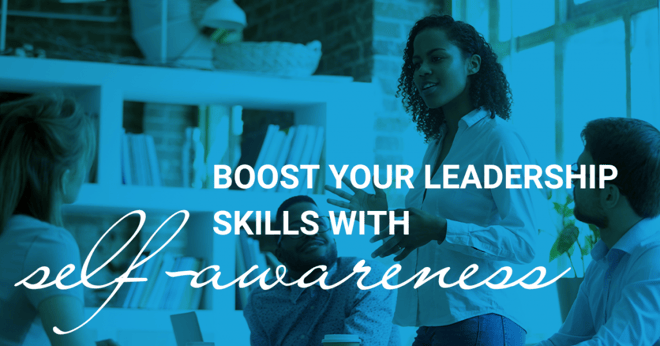By Tierra Madani, CPHR, HR Consultant (Chemistry Consulting Group)
Self-awareness is a core capability for great leaders to develop. Successful leaders are aware of their natural tendencies and utilize this know-how to boost those tendencies. By definition, self awareness is an understanding of your internal state, which shapes the way you interact with others. As one of the components of emotional intelligence, there is much opportunity for growth in this area for any professional, especially those managing others.
Be aware of the negative effects of low self-awareness, which can limit your effectiveness as a leader. One of the key indicators of having low self-awareness is being unaware of your personal blind spots that limit your behaviours, reactions and beliefs. This can lead to issues and conflicts in communication, work environment, morale, mental health and, in some cases, can result in a team member quitting or being dismissed.
Are there leaders that embody low or high self-awareness in your organization? Is this something you are working towards in your own personal and professional development? It’s an ongoing and continual improvement process that can start at any time and is valuable enough to make it as part of your daily or weekly list of practices. Here’s a few tips on how to boost your self-awareness:
Tips on Boosting your Self-Awareness
- Get to know yourself more
Understanding yourself is an important part of building your emotional intelligence. By definition, emotional intelligence is the ability to recognize and understand emotions in yourself and others, and your ability to use this awareness to manage your behaviours and relationships.
- Point out external factors
External factors are often a long list of factors, triggers and indicators that affect our perspectives and other’s perceptions. What are the external factors that affect you? Think about triggers or indicators that both negatively and positively prompt others’ behaviours towards you. Here, we must ask ourselves why we do the things we do and how do others respond to us? The evaluation continues from there in determining why you respond again and why you are reacting the way you are in a given situation.
- Gather feedback
We build our ability to show empathy when we are open to and ask for feedback. It is important in understanding how you impact others with how you show-up. Enlist the help of those you trust for feedback on how others may perceive you in certain situations and inquire further to gain a deeper understanding.
- Write it down
Situations may elicit a new insight you won’t want to forget, so write it down. This is the basis of continuous improvement and how we remind ourselves about our ‘aha’ moments and times when we handled something really well. Was there a time when you utilized something you learned about your self-awareness to improve an interaction? Keep a journal and have it handy to reference again.
- Keep an open mind
Stay open to feedback, be agile and check-in with yourself frequently. New situations can lead to new triggers you’ll need to add to your external factors list. You may also have an opportunity to gain more feedback during your team check-ins or during your performance review processes. Continue to get to know yourself more and never stop learning.
Self-awareness is an essential trait of a great leader. You’ll see benefits as you take the time to evaluate yourself and the reactions you prompt around you and use that knowledge to improve your leadership skills. With greater self-awareness, you’ll be able to create stronger bonds with your team, make better decisions and to inspire others to do the same.


